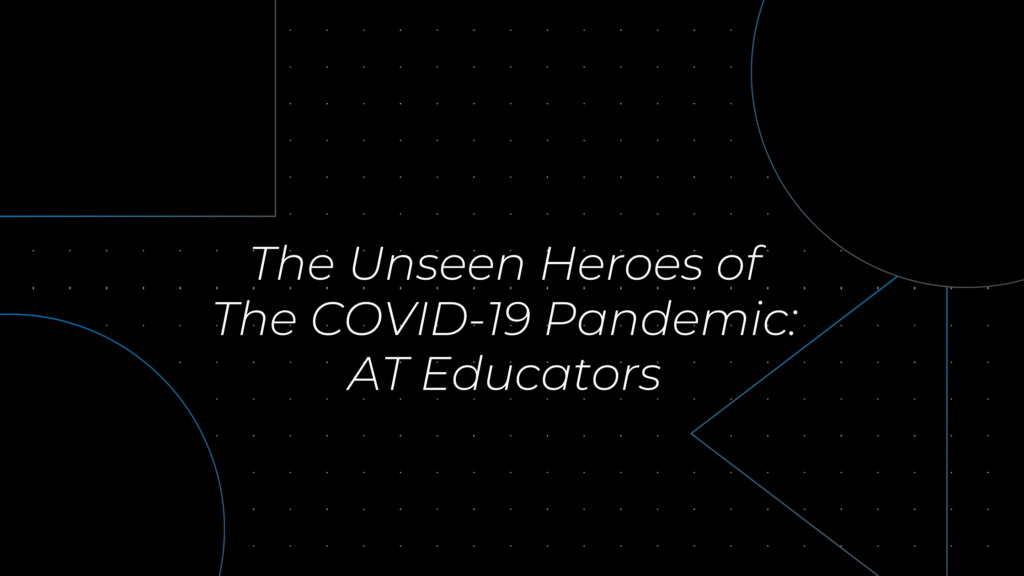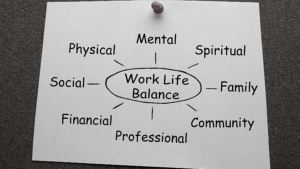It was March 2020 when COVID-19 was declared a pandemic by the World Health Organization.
At that point, most of us were so unsure of what this meant and how it would affect us. It felt like it came out of nowhere and the world stood still in utter shock as we watched it all unfold.
What would this mean for athletics? How would this impact our graduating seniors? What challenges would this bring and how would we adapt? How would we continue preparing AT students for the workforce without sports and limited access to essential components of their education?
Overwhelm, doubt, and worry are just a few of the words educators used to describe how they felt when they learned that the remainder of the school year was going online after COVID-19 halted life as we know it.
Jen Cuchna explains, “I was prepared but feared my students were not.”
Can you imagine the feelings they experienced as they worried about their students getting left behind? On top of the fear and uncertainty we all felt as we hunkered down in isolation with little information on how this would all play out.
But here’s the thing, athletic trainers are resourceful. They always find a way to get it done in the face of adversity and the same goes for the ones who have stepped up to educate and build us up for the profession.
We were intrigued and wanted to hear directly from educators on their experience during this unprecedented time so we created a poll and set out to learn more.
Although we knew what a tough year it’s been for them to pivot online, we didn’t fully grasp the angst, long hours, and uncertainty they faced.
Many shared how unsure they felt. Between the pressure to deliver a high-quality curriculum while keeping students engaged from afar to worrying about the health and safety of their students, staff, and faculty, it was a lot to manage.
Although there was a ton of worry around the ability to provide the full educational experience, most educators shared that their innovative and adaptable mindset is what kept them creative in their solutions. Some took online teaching courses to feel more prepared while others forged new partnerships in areas they never thought possible.
They looked to fellow educators, leveraged their networks, and got resourceful to defeat this dreadful year and they came out on top. They stayed progressive and weren’t afraid to ask their peers for help, which kept them in it together.
Can you imagine the loads of stress our educators faced this year? While many of us sat home in disbelief waiting for more information, our educators had to act and they had to do it quick.
Melissa Thomas shares, “I have always felt I could adapt, but this brought it to a new level. I think just seeing a problem from all sides.”
One thing we do know is that in the face of challenge and distress, as humans we adapt and that is exactly what our educators did to continue preparing AT students for the profession. We can’t even begin to grasp the impact it would have had on the AT profession had our educators not stepped up and made the sacrifices they did.
We want to share our immense gratitude to all educators, faculty, staff, and their families who endured this insane year. You are the unseen heroes in this whole fiasco and without you, the incoming wave of ATs would’t be able to provide the quality healthcare services that they do so THANK YOU.
To share their experiences, we polled ATs to learn about educators who have made an impact on them personally and professionally. We received many submissions and were able to hear about experiences with educators and mentors across the country.
Click HERE to learn more!






